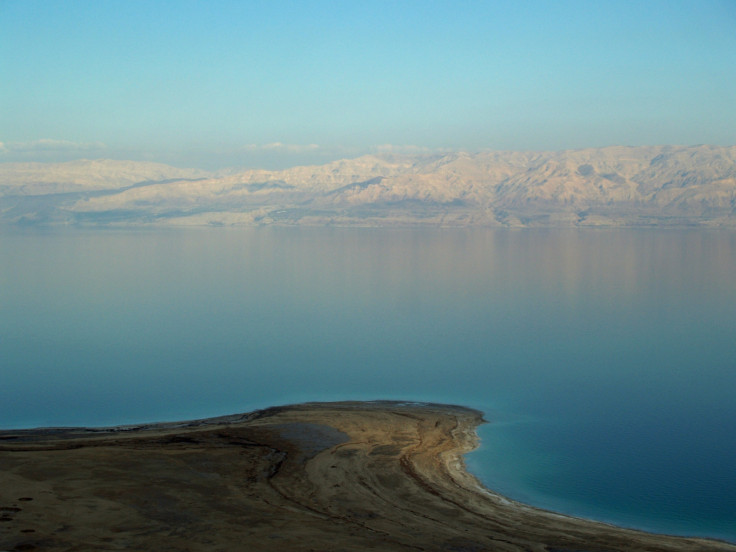Devastating drought blighted the Dead Sea 120,000 years ago and could again by 2100
During the intense dry period, the water reaching the Dead Sea dropped to just 20% of modern levels.
Digging a 1,500-foot core into the earth under the deepest part of the Dead Sea has revealed a 220,000-year climate history of the region, including a drought more intense than anything in historical records. If temperatures raise to 4C by the end of the century, the area could be faced with a similar drought, analysis of the core suggests.
More than a month of round-the-clock drilling revealed 300-foot stretches of salt-rich sediment, which shows when and how fast the Dead Sea dried up and refilled, along with changes in the chemistry of the water, trapped in tiny bubbles in the salt. The results are revealed in a paper published in the journal Earth and Planetary Science Letters.
The core showed a particularly intense period of drought in the previous warm period in between ice ages, or interglacial. As the water dried up, it left layers of thick crystals of salt on the seabed. Salt accumulated at a rate of up to half an inch a year at some points, the researchers found.
"This time globally was a very warm period on Earth, about 4C warmer than it is now," study author Yael Kiro of Colombia University's Lamont-Doherty Earth Observatory told IBTimes UK.
"What we see is that when it was very warm, then we get a significant decrease in rainfall and precipitation. On average over the whole period the water availability decreased to around 50% of modern levels. During the driest periods, it dipped to just 20%."
The findings can be seen as an ancient model for what might happen if temperatures in the region increase to 4C by the end of the century, as is set to happen if global carbon emissions are not significantly cut back. The "business-as-usual" model for emissions would bring the climate in line with how it was in the last interglacial by 2100 and risk drought on the scale of the one that happened 120,000 years ago.
Rainfall has already declined in the region by 10% since 1950 and is set to decrease by another 20% by 2100, according to the UN Food and Agriculture Organization.

"The Dead Sea is wasting away today because humans are using up all its freshwater sources," said Steven Goldstein, also a study author at Lamont-Doherty.
"Our study shows that in the past, without any human intervention, the freshwater nearly stopped flowing. This means that if it keeps getting hotter now, it could stop running again. This time, it would affect millions of people."

© Copyright IBTimes 2025. All rights reserved.






















